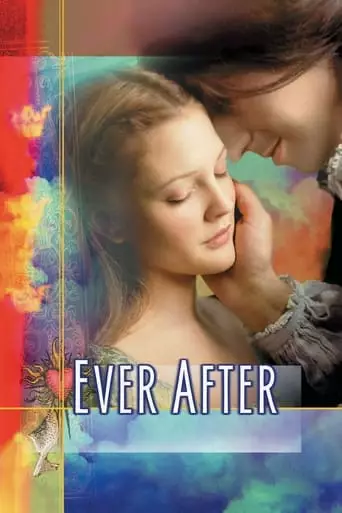
EverAfter (1998) Watch Online Free
Orphaned as a child, Danielle is treated like a servant by her wicked stepmother and two stepsisters. When she stumbles onto Prince Henry, who’s fleeing an arranged marriage, the two inspire each other to resolve their respective troubles.
Ever After, directed by Andy Tennant, is a 1998 romantic drama that reimagines the classic Cinderella fairy tale. Set in Renaissance-era France, the film follows Danielle de Barbarac (Drew Barrymore), a young woman of noble birth who is orphaned and raised by her cruel stepmother, Rodmilla (Anjelica Huston). Despite her circumstances, Danielle remains spirited and independent.
The narrative unfolds as Danielle crosses paths with Prince Henry (Dougray Scott), who is seeking a bride. Disguised as a courtier, Danielle attends a royal ball, where she and Henry form a connection. However, their relationship faces numerous obstacles, including societal expectations and Rodmilla’s schemes. The film culminates in a series of events that challenge the characters’ perceptions of love, duty, and personal agency.
Ever After emphasizes the importance of self-reliance and personal agency. Danielle’s journey showcases her resilience and determination to shape her own destiny, challenging traditional gender roles and societal expectations. Her character embodies the idea that one’s worth is not defined by birthright or external circumstances.
The film explores the theme of love transcending social hierarchies. Danielle and Prince Henry’s relationship develops based on mutual respect and understanding, rather than societal status or wealth. This theme underscores the notion that true love is founded on equality and shared values.
Education plays a pivotal role in the narrative, with Danielle’s intelligence and literacy setting her apart from other characters. Her ability to read and write not only empowers her but also enables her to engage in meaningful conversations with Prince Henry, highlighting the transformative power of knowledge.
The film delves into the complexities of family relationships, particularly the mother-daughter dynamic between Danielle and her stepmother, Rodmilla. It portrays the nuances of familial bonds, including love, rivalry, and betrayal, offering a more nuanced perspective on family than traditional fairy tales.
Ever After received positive reviews for its fresh take on the Cinderella story, with particular praise for Drew Barrymore’s performance and the film’s historical setting. Critics appreciated its blend of romance, drama, and humor, noting its appeal to a wide audience. The film’s success contributed to a resurgence of interest in fairy tale adaptations that offer a more grounded and realistic portrayal of classic stories.
Ever After offers a refreshing departure from traditional fairy tale narratives by presenting a realistic and historically grounded version of the Cinderella story. The film’s attention to detail in setting and character development provides a more relatable and immersive experience for viewers.
Danielle de Barbarac, portrayed by Drew Barrymore, is a compelling and independent heroine who defies the passive archetype often associated with fairy tale characters. Her strength, intelligence, and resilience make her a role model for empowerment.
The on-screen chemistry between Drew Barrymore and Dougray Scott enhances the romantic aspect of the film. Their interactions are genuine and heartfelt, making their relationship both believable and engaging.
The film’s setting in Renaissance France provides a rich cultural backdrop that enhances the narrative. The inclusion of historical figures like Leonardo da Vinci adds depth and interest, offering viewers a glimpse into the era’s art, politics, and social dynamics.
Unlike many fairy tales that focus solely on beauty, Ever After highlights the importance of education and intelligence. Danielle’s literacy and quick wit are central to the plot, promoting the value of knowledge and personal growth.
Rodmilla, portrayed by Anjelica Huston, is a multifaceted antagonist whose motivations and actions add depth to the story. Her character provides a nuanced portrayal of villainy, moving beyond the typical evil stepmother trope.
The film addresses themes such as empowerment, love beyond social status, and the importance of education, which resonate with contemporary audiences. Its messages are timeless and continue to inspire discussions about societal norms and personal agency.
After watching Ever After, you will likely feel uplifted and inspired by the film’s portrayal of a strong, independent heroine who defies traditional fairy tale conventions. The movie’s emphasis on empowerment, love, and personal growth offers a refreshing perspective that resonates with modern sensibilities. You may also appreciate the film’s historical setting and the depth of its characters, which provide a more nuanced and engaging narrative than typical fairy tale adaptations.
The film’s conclusion, which ties together the characters’ journeys and growth, leaves a sense of satisfaction and hope. It reinforces the idea that individuals have the power to shape their own destinies, regardless of their circumstances. Overall, Ever After offers a compelling and heartwarming experience that combines romance, drama, and historical intrigue, leaving viewers with a sense of fulfillment and inspiration.
